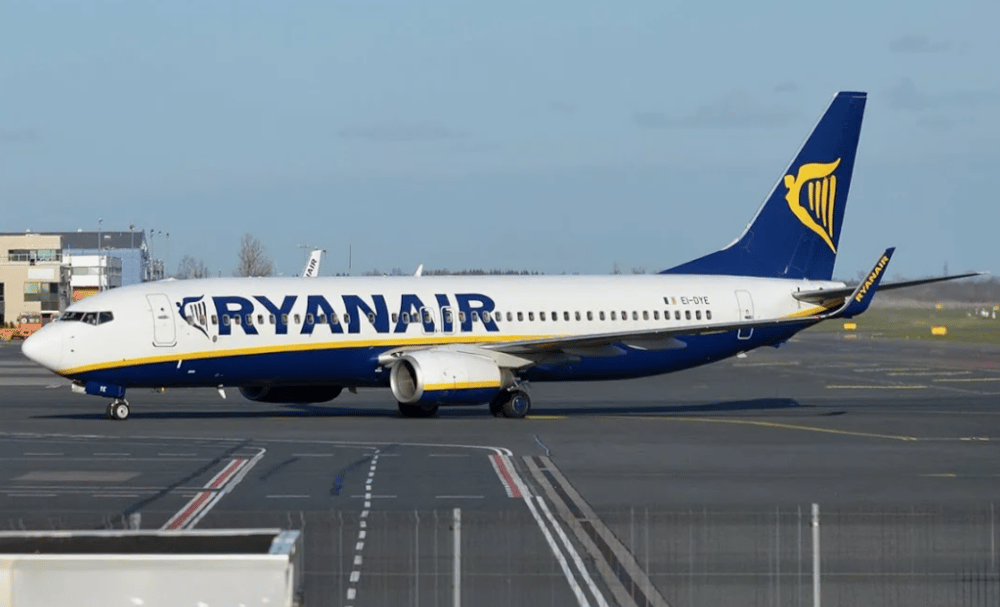
Innovative investment approaches are fueling a surge in capital growth and paving the way for groundbreaking advancements

Ryanair Holdings Plc $RYAOF, Europe’s largest low-cost airline, has found itself at the center of a growing geopolitical and industrial debate after a senior U.S. lawmaker issued a stark warning over the potential purchase of Chinese-made aircraft. The cautionary statement came in response to comments from Ryanair’s CEO indicating the airline may consider sourcing jets from China’s COMAC if the pricing is favorable — especially if U.S. tariffs inflate the cost of current orders from Boeing Co. $BAX.
The conversation around Ryanair’s fleet planning has shifted from purely economic considerations to a broader dialogue about national security, trade policy, and supplier diversification. Ryanair’s reply to the U.S. legislator, viewed by Reuters, suggests that the Irish carrier may cancel future Boeing deliveries if new U.S. tariffs significantly raise costs — opening the door to alternative aircraft manufacturers, including COMAC.
This development occurs against the backdrop of an increasingly strained transatlantic trade environment and growing concerns in Washington about the security and certification standards of Chinese aviation technology.
U.S. Tariff Risk: Any move by the U.S. government to impose additional trade restrictions or duties on aircraft manufacturing could directly impact Boeing’s pricing — which Ryanair heavily relies on for fleet expansion.
Cost Optimization Mandate: As a low-cost carrier, Ryanair maintains strict cost discipline. The potential of securing competitively priced aircraft from COMAC adds pressure on Boeing to maintain pricing competitiveness.
Supply Chain Flexibility: Ongoing delivery delays and backlogs in the aerospace sector make diversification a strategic priority.
Geopolitical Complexity: The inclusion of a Chinese aircraft supplier introduces new risks, from regulatory compliance in Europe to diplomatic tensions with the U.S.
Reputational Sensitivities: Public scrutiny surrounding aviation safety, especially from U.S. officials, adds a reputational layer to any decision involving non-Western manufacturers.

Regulatory Headwinds: Any potential COMAC acquisition would be subject to stringent European Union Aviation Safety Agency (EASA) certification — a process yet to be finalized for COMAC aircraft.
Industrial Rivalries: Boeing and Airbus dominate the narrow-body market segment. Ryanair exploring COMAC alternatives signals growing frustration with duopoly-driven pricing power.
Supply Chain Constraints: Boeing has struggled with delivery consistency, leading carriers like Ryanair to explore contingency options.
Economic Nationalism: The U.S. lawmaker’s warning reflects a broader trend of governments viewing commercial aviation as a domain of strategic national interest.
Market Signaling: Ryanair’s public comments may also serve as a negotiation tactic to pressure Boeing into better pricing or faster delivery commitments.
Ryanair’s openness to COMAC reflects both commercial pragmatism and geopolitical risk-taking. The airline’s fleet decisions — typically rooted in cost and efficiency metrics — are now entwined with global trade dynamics and regulatory oversight. As COMAC seeks to break into the Western aviation market with its C919 jet, interest from high-profile customers like Ryanair could prove pivotal. However, such interest is likely to face intense scrutiny from Western regulators and policymakers alike.
Whether Ryanair ultimately follows through on its interest in Chinese aircraft may depend less on pricing and more on the evolving political climate between the U.S., EU, and China — as well as Boeing’s ability to retain cost leadership in a tightening global aviation market.